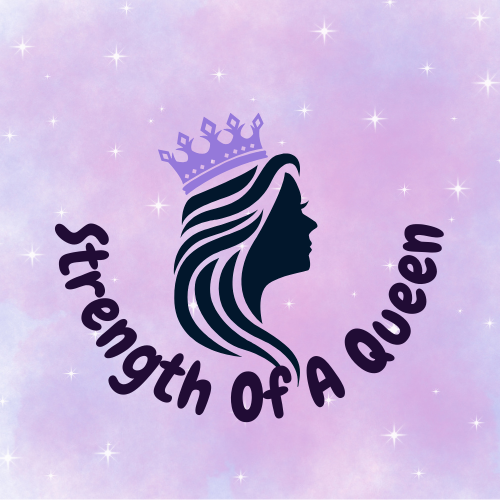Navigating Relationships for Young Adults: Empowerment, Love, and Growth!
- strengthofaqueen

- Dec 31, 2024
- 4 min read
Updated: Jun 26, 2025

Introduction
Navigating relationships as a young adult can feel like stepping into uncharted waters. From the excitement of first love to the challenges of understanding boundaries, relationships teach us valuable lessons about ourselves and others. However, without guidance, young adults can sometimes find themselves in unhealthy dynamics, even facing issues like emotional abuse or domestic violence.
Whether you’re experiencing your first love or reflecting on past experiences, this guide will help you approach relationships with confidence and clarity.
The Foundation of Healthy Relationships
Building healthy relationships starts with understanding the basics. Here are the key elements:
Communication is Key: Open, honest communication lays the groundwork for trust and mutual respect. Share your thoughts and listen actively to your partner.
Establish Boundaries: Personal boundaries protect your emotional and physical well-being. Healthy relationships honour and respect these limits.
Mutual Respect: Respecting your partner’s individuality and needs is vital. Healthy love is not about control but collaboration.
Shared Values and Goals: While differences are natural, aligning on core values and goals can strengthen your connection.
Recognizing Red Flags
In the excitement of first love, it’s easy to overlook warning signs. Here are some red flags to watch for:
Control and Manipulation: If your partner tries to dictate your actions, friends, or choices, it’s a sign of unhealthy control.
Emotional Abuse: Constant criticism, belittling, or gaslighting are forms of abuse that can erode self-esteem.
Isolation: Abusers often isolate their partners from friends and family to maintain control. A healthy relationship encourages social connections.
Lack of Respect for Boundaries: If your partner disregards your comfort zones, it’s a serious issue.
First Love: Navigating the Highs and Lows
First love is often a whirlwind of emotions. Here’s how to navigate it with balance:
Enjoy the Experience: Embrace the joy and excitement, but don’t lose sight of your individuality.
Keep a Support System: Maintain relationships with friends and family. They provide perspective and support.
Learn from Challenges: Every relationship, even those that don’t last, teaches valuable lessons about what you need and want.
Beware of Idealization: It’s easy to put your first love on a pedestal. Remember, both you and your partner are human, with flaws and strengths.
Learning About Relationships: Practical Tips
Navigating relationships is a lifelong learning process. Here are actionable steps to develop your relationship skills:
Educate Yourself: Read books, attend workshops, or explore online resources about healthy relationships. Awareness is empowerment.
Reflect on Past Experiences: Consider what worked and what didn’t in your previous relationships. Self-awareness is key to growth.
Seek Role Models: Look to couples who embody the kind of relationship you aspire to have. Observe how they communicate and resolve conflicts.
Practice Empathy: Understanding your partner’s perspective fosters deeper connections and reduces misunderstandings.
Set Personal Goals: A strong sense of self is the foundation for a healthy relationship. Pursue your passions, career goals, and interests.
Understanding and Preventing Abuse
Abuse in relationships can happen to anyone, regardless of age or background. Recognizing it early can save you from prolonged pain. Here’s what young adults need to know:
Types of Abuse: Abuse isn’t always physical. Emotional, verbal, and financial abuse can be just as damaging.
Recognize the Cycle: Abuse often follows a pattern: tension building, an abusive incident, reconciliation, and calm. This cycle tends to repeat and escalate.
Know When to Leave: If you’re in an abusive relationship, prioritize your safety. Reach out to trusted individuals or organizations for help.
Seek Professional Support: Counselling or therapy can provide tools to heal and move forward. Many resources cater specifically to young adults.
Empowering Yourself and Others
Empowerment begins with self-awareness and extends to supporting those around you. Here’s how you can foster empowerment:
Build Self-Worth: Remember that you are deserving of love and respect. Affirmations and self-care practices can boost confidence.
Educate Your Circle: Share knowledge about healthy relationships with friends and peers. Creating a culture of awareness benefits everyone.
Support Friends in Need: If someone you know is in an abusive relationship, listen without judgment and encourage them to seek help.
Advocate for Change: Get involved in campaigns or initiatives that promote healthy relationships and combat domestic violence.
Actionable Insights for Healthy Relationships
Take Your Time: There’s no rush to find “The One.” Focus on building a strong foundation of trust and understanding.
Prioritize Emotional Safety: Your partner should be someone who makes you feel safe, valued, and supported.
Communicate Effectively: Practice active listening and express your needs clearly. Healthy communication prevents misunderstandings.
Celebrate Independence: Healthy relationships thrive when both partners maintain their individuality and pursue personal goals.
Conclusion: Navigating Relationships with Confidence
Navigating relationships as a young adult is a journey of discovery, growth, and empowerment. By understanding the fundamentals of healthy love, recognizing red flags, and prioritizing self-worth, you can build connections that enrich your life.
Remember, every relationship whether it lasts a month or a lifetime, teaches you something valuable. Equip yourself with knowledge, surround yourself with supportive people, and don’t hesitate to seek help if you encounter abuse.
Recommended Reading:
If you’re looking for more in-depth guidance on this topic, consider reading 'Navigating Relationships for Young Adults' - Which goes into more depth about Toxic Relationships and how to avoid them alongside exercises.



Comments